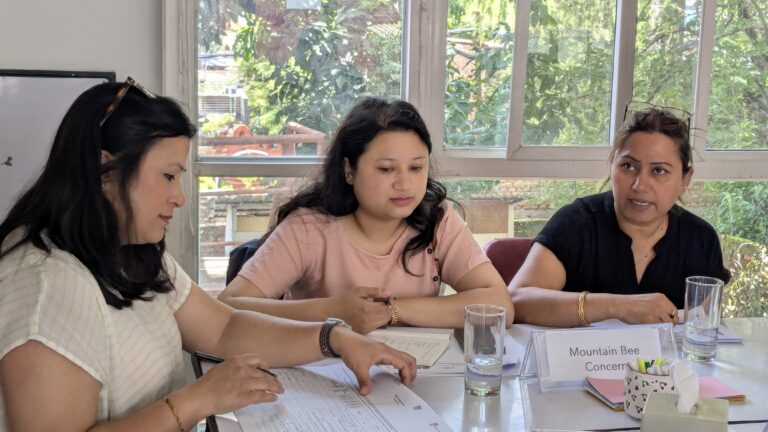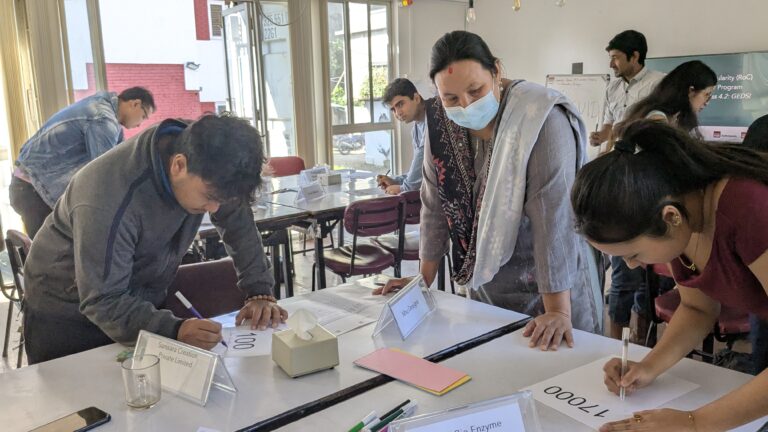
In Bagmati Province, the second cohort of the Roots of Circularity Incubator Programme is building strong momentum. With each session, participants are gaining the knowledge, confidence, and networks needed to accelerate circular transformation in their communities.
The cohort’s journey so far has been filled with interactive and purpose-driven masterclasses that connect circular principles with real-world business strategies:
Circular Finance: Entrepreneurs explored funding models tailored to circular ventures and took part in World Café discussions on sustainable finance. They also learned to strategically use pre-seed funding provided through the programme.
Circular Strategy and Stakeholder Mapping: A hands-on session guided participants in identifying key stakeholders and collaboration opportunities, using Circular Strategy Cards to design systems-based solutions.
Visibility and Branding: Incubatees learned how to communicate their purpose with clarity and consistency—developing visual identities, storytelling techniques, and personal videos to connect more deeply with their audiences.
Environmental Practices: Through case studies, participants examined sustainable operations, learning how to avoid greenwashing and embed genuine climate strategies into their work.
Gender Equality, Disability, and Social Inclusion: This powerful session highlighted how inclusion and equity intersect with circular innovation. Participants explored gender equity, disability inclusion, and sexual harassment prevention—committing to creating safer, more inclusive workplaces.
Through these masterclasses, it becomes clear that circular transformation is as much about nurturing values and relationships as it is about refining business models to achieve lasting systemic impact.

Launch of the Circularity Toolkit
To further support this growing circular movement, Impact Hub Kathmandu has officially launched the Circularity Toolkit for MSMEs in Bagmati and Lumbini Provinces—a powerful new resource under the Roots of Circularity Project.
Developed in collaboration with Impact Hub Association and Wildlife Conservation Nepal, and funded by the European Union, the toolkit provides practical tools, frameworks, and methodologies designed to help changemakers embed circular economy principles in their daily work.
Built for a wide range of stakeholders—from entrepreneurs and entrepreneur support organisations (ESOs) to civil society organisations (CSOs), local governments, private sectors, and academia—the toolkit aims to:
Decode circular economy (CE) trends and frameworks, and highlight opportunities across key sectors.
Strengthen capacity at both organisational and ecosystem levels.
Integrate circular thinking into programme design, delivery, and business models.
Together, these efforts represent a growing network of circular innovation rooted in collaboration, inclusion, and impact.
